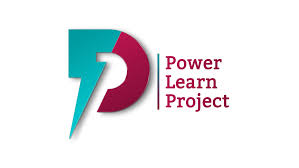Globally, the Digital Economy is expanding at a breakneck pace. This platform has transitioned from a luxury to an absolute necessity in just a few years.
On Friday, 18 November, 2022, at Oriental Hotel, Lagos, Power Learn Project (PLP), in partnership with Adanian Labs Nigeria and the Job Red, will launch the #1MillionDevs4Africa Programme in Nigeria in a bid to train one million software developers across the continent by 2027.

Nigeria is the fifth country in Africa, after Kenya, South Africa, Zambia, and Tanzania, to introduce the #1MillionDevs4Africa program.
Digital Skills in the Fourth Industrial Revolution, and their Impact on National Development, have been highlighted as pillars in Nigeria’s National Digital Economy Strategy (NDEPS).
In actualizing NDEPS for Digital Nigeria 2020 – 2030, unveiled by President Muhammadu Buhari on November 28, 2019, developing digital literacy and enhancing the digital society is crucial to enabling emerging
technologies.
The global economy is undergoing rapid digital transformation, and Nigeria is said to be in the best position to reap the benefits of the digital economy. The country’s potential is evident in its size as the most extensive digital market and the leading destination for investment in Africa. Experts estimate that Nigeria’s digital sector could add $88 billion and 3 million jobs to the economy by 2027.
“Digital Sector: Skills Gap Report’ indicates that Nigeria’s digital economy holds the potential to create jobs and reduce the rate of unemployment. However, to fully harness the sector’s potential, there is a need for the country to invest in digital and soft skills. With many courses in Nigerian universities becoming less marketable in the work world and students lacking employable skills when seeking opportunities, acquiring digital skills is the right direction for achieving digital inclusion.
“For personal growth and access to job opportunities across the local and international tech ecosystems, students need to migrate to online study platforms and pursue their educational aspirations,’’ says Mumbi Ndung’u, Chief, Growth & Operations Officer of Power Learn Project.
Launched in April 2022 in Kenya, PLP is a Pan African impact organization with a vision of driving transformative change for the youth in Africa by empowering them with relevant technology capacity through providing quality, affordable and decentralized tech training.
PLP aims to kickstart software careers with entry-level, fully funded training using free data access and self-paced learning management over 16 weeks. The course ranges from programming languages such as Python and Dart Programming with Flutter to Blockchain 101, Databases, Data Science, and Entrepreneurial skills.
The learners will then have opportunities for hands-on practical experience through a proof of work module. Learners will earn a certificate upon successfully completing the course and join a community of young skilled Africans ready to take on digital opportunities.
They will also be equipped with life skills such as Financial Literacy, Health, and Well-being with our partner AfyaRekod, who will provide access to their mental health data and support when in need, among many more. These will
help them navigate the fast-paced, evolving world as productive members of society.
“Upon completion of the course, learners will have access to a number of opportunities and
alternative educational pathways through the organization, ranging from internships and proof of work opportunities or venture studio and incubator connections if they want to explore entrepreneurship,” states Ndung’u.
In the pilot phase of the Nigeria program, PLP aims to train 1500 software developers in Nigeria for four months. Over the next few months, PLP is looking to launch four more pilot countries, Rwanda, Ghana, and Uganda, with West and North Africa envisioned for phase 2 of the programme. The scholarship programme is officially accepting applications as of 19th October 2022.
“We are focused on equipping young Nigerians and African youth with digital skills. We realize technology is key to economic growth through industrialization and human capital development.
“COVID has allowed everyone globally to leverage technology across all sectors of the global economy, be it in health, Agritech, Edutech, Fintech, e-Commerce, manufacturing, or telecommunications.”


